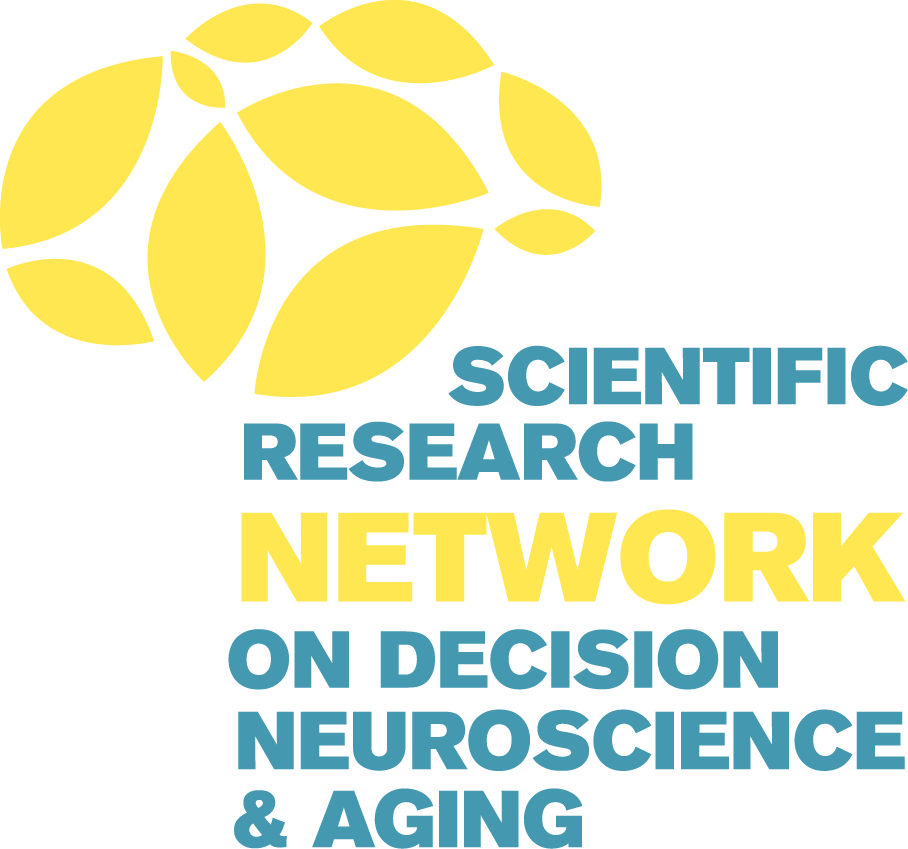2013 Pilot Grants
Oxytocin and Social Decision Making in Aging
NATALIE EBNER (ASSISTANT PROFESSOR, DEPARTMENT OF PSYCHOLOGY, UNIVERSITY OF FLORIDA), RONALD COHEN (PROFESSOR OF AGING AND GERIATRIC RESEARCH, UNIVERSITY OF FLORIDA), DAVID FEIFEL (PROFESSOR, DEPARTMENT OF PSYCHIATRY, UCSD)
AWARD DATES: 8/1/13 – 7/31/14
Determining whether an unfamiliar person is trustworthy and approachable are crucial decisions humans routinely face in their social environments. Older compared to young adults show increased interpersonal trust, rendering them more susceptible to trusting ill-intending people and scams, seriously compromising emotional and physical health and social life. This age-related increase in trust may be due to older adults’ decreased ability to accurately read other people’s social and emotional cues; it may also be due to age-related alterations in brain function associated with trust-related decision making and/or specific peptides/hormones that directly affect prosociality. The neuropeptide oxytocin has been shown to elevate interpersonal trust. However, nothing is known about age-related changes in the oxytocin system in the context of trust-related decision making. The proposed study adopts a neuroendocrine and socio-behavioral approach to determine the effects of oxytocin on decisions of trust in financial as well as health contexts in aging. Following a standardized, double-blind procedure, participants self-administer synthetic oxytocin (or placebo) intra-nasally before engaging in an economic trust game, a food trust game, and a facial trustworthiness task, while undergoing fMRI. This project brings together a team with expertise in aging, neuroscience, and psychopharmacology. It constitutes an example of best practice in combining multiple methodologies offering different levels of analysis on the phenomenon of interest in a conceptually-driven manner. The findings will advance basic science in clarifying neuroendocrine and behavioral relationships in the context of trust and decision making in aging. In addition, information gained from this project will have the potential to inform interventions targeted at social and emotional dysfunction in the elderly with the long-term goal to help older adults make better decisions in social contexts and reduce social stress and anxiety.
Publications:
Ebner, N. C., Lin, T., Muradoglu, M., Weir, D. H., Plasencia, G. M., Lillard, T. S., Pournajafi-Nazarloo, H., Cohen, R. A., Carter, C. S., & Connelly, J. J. (2018). Associations between Oxytocin Receptor Gene (OXTR) methylation, plasma oxytocin, and attachment across adulthood. [Special issue] International Journal of Psychophysiology, 1-11.
Ebner, N. C., Chen, H., Porges, E., Lin, T., Fischer, H., Feifel, D., & Cohen, R. A. (2016). Oxytocin’s effect on resting-state functional connectivity varies by age and sex. Psychoneuroendocrinology, 69, 50-59.
Ebner, N. C., Kamin, H., Diaz, V., Cohen, R. A., & MacDonald, K. (2015). Hormones as “difference makers” in cognitive and socioemotional aging processes. Frontiers in Emotion Science, 5, 1595, 1-15.
Ebner, N. C., Horta, M., Lin, T., Feifel, D., Fischer, H., & Cohen, R. A. (2015). Oxytocin modulates meta-mood as a function of age and sex. Frontiers in Aging Neuroscience, 7, 175, 1-7.
Ebner, N. C., Maura, G. M., MacDonald, K., Westberg, L., & Fischer, H. (2013). Oxytocin and socioemotional aging: current knowledge and future trends. Frontiers in Human Neuroscience, 7, 487.
Grants:
Uncovering and surveilling financial deception risk in aging (R01-AG057764)
Acute Stress and Age-Related Differences in Reward Processing and Executive Function
ANTHONY PORCELLI (ASSISTANT PROFESSOR OF PSYCHOLOGY, MARQUETTE UNIVERSITY; ASSISTANT ADJUNCT PROFESSOR OF THE CTSI, MEDICAL COLLEGE OF WISCONSIN), KRISTY NIELSON (PROFESSOR OF PSYCHOLOGY, MARQUETTE UNIVERSITY; ASSOCIATE ADJUNCT PROFESSOR OF NEUROLOGY, MEDICAL COLLEGE OF WISCONSIN), APRIL HARKINS (ASSISTANT PROFESSOR IN CLINICAL LAB SCIENCE, MARQUETTE UNIVERSITY).
AWARD DATES: 8/1/13 – 7/31/14
Summary: In part due to advances in modern medicine, people are living longer than ever before. Aging is associated with cognitive declines across functional domains, at the extreme end converting to dementia or neurodegenerative disorders such as Alzheimer’s Disease. Even “healthy aging” can be associated with declines in memory and executive functioning (EF). Large individual differences in cognitive decline in the aged population indicates that risk factors exist, which implies they can be delineated and used to predict cognitive decline and to develop early interventions. One such factor may be exposure to stress. While much research has been conducted on the effects of stress and age on memory and certain aspects of EF, decision-making is only beginning to be examined in this context. The purpose of the proposed study is to examine the influence of aging and stress on decision-making via an essential decision-related faculty – reward processing (RP). Aged and young adult participants will complete a comprehensive battery of neurocognitive assessments as well as series of testing tools designed to evaluate decision-making on multiple levels. After exposure to an acute stressor or a no stress control procedure, participants will engage in a series of EF and RP tasks while undergoing fMRI scanning. Measurements of neuroendocrine (e.g., cortisol and alpha-amylase) and peripheral physiological (e.g., skin conductance and heart rate variability) correlates of the stress response will also be acquired. Our interdisciplinary approach represents the combined effort of researchers with expertise in neuroscience, aging, executive function, and neuroendocrinology. Findings resulting from the proposed research may provide new insights into early indicators of cognitive decline associated with age and exposure to stress, possibly suggesting directions for developing and implementing early interventions.
Publications:
Porcelli, A. J., & Delgado, M. R. (2017). Stress and Decision Making: Effects on Valuation, Learning, and Risk-taking. Current opinion in behavioral sciences, 14, 33–39. https://doi.org/10.1016/j.cobeha.2016.11.015
Porcelli, Anthony J., “Acute Stress Enhances Expression of Instrumentally Conditioned Financial Preferences” (2016). Psychology Faculty Research and Publications. 212. https://epublications.marquette.edu/psych_fac/212
